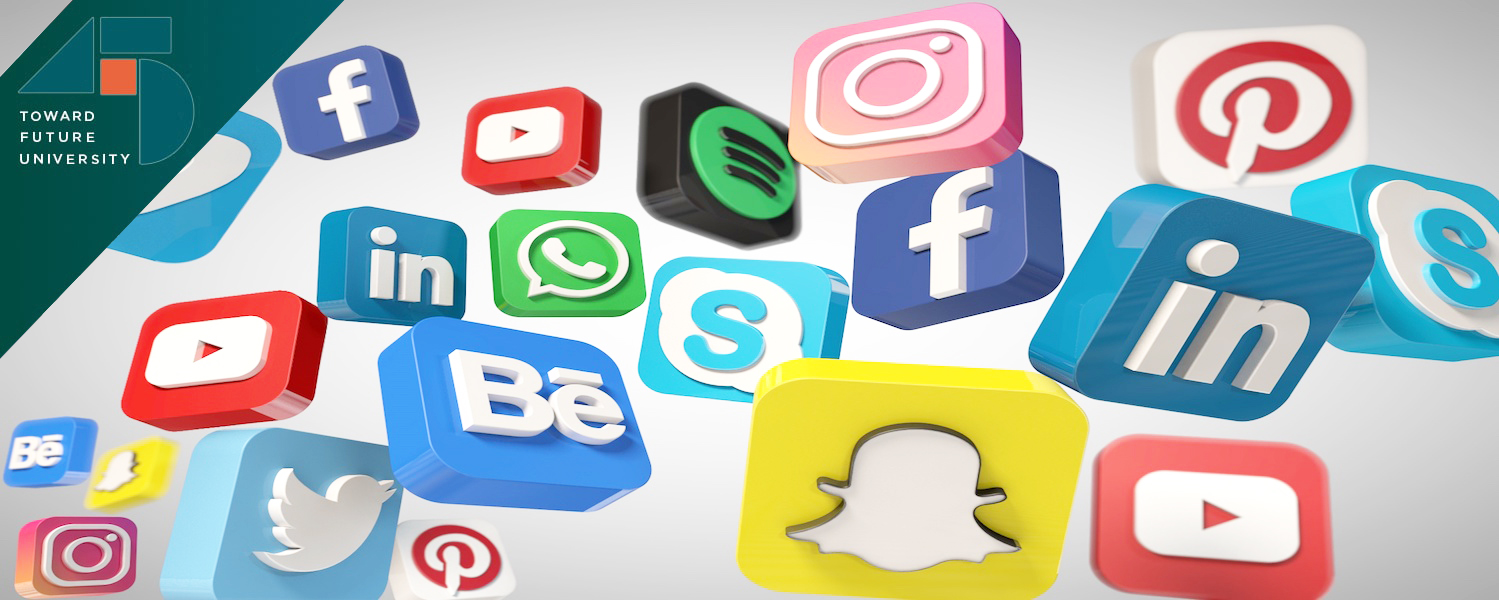
Be a smart user when receiving and sharing information
30 Aug, 2021
Along with the birth and robust development of many social networks today, the problems of sharing users' information as well as information safety and security are facing new risks. Specifically, personal informationspread on social networksor the "massive" sharing of unverified information has negatively impacted society. Faced with this situation, Dr. Ngo Tan Vu Khanh - Director of the Master's Program in Information and Communication Design, University of Economics Ho Chi Minh City (UEH), has shared helpful advice.
Recently, the personal information of many people has been spread on social networks. There are various cases, such as phone numbers (the case of 8 ambulance phone numbers), photos (the case of Khanh Hoa employees posting photos on Tiktok after being penalized for "bread is not an important meal"), private life (the case of Covid-19 patients’ private information)… were made public on social media sites. Or individuals who post false information that cause confusion and create public opinion being falsely led. These specific cases generalize the current situation of spreading personal information on social networks.

Dr. Ngo Tan Vu Khanh - Director of the Master's Program in Information and Communication Design, University of Economics Ho Chi Minh City
What are the potential risks of personal information being spread on social networks?
The current situation of spreading personal information on social networks has many potential risks. The fact that the personal information of people (or even organizations) is used to spread false information is very condemnable. The world's leading cybersecurity companies have recorded a lot of solid scams in Southeast Asia in general and Vietnam in particular during recent months, not to mention some individuals even take advantage of the time when everyone is at home, information is difficult to verify directly, but only in the form of online and share/like on social networking platforms to the purpose of personal gain (for example: selling placebos for Covid treatment, poor quality medical equipment, unsafe food ...) by using names, even images of people with influence (KOL).
Sharing their information for various purposes on the internet "highway" and personal information being spread online is inevitable. It is straightforward for bad guys to use it for different purposes. The risks are easy to mention: becoming an intermediary for fraud, creating false beliefs, polishing the names of bad guys. Leaking personal information is easily disturbed (Spam), causing confusion and affecting daily life and work. Not to mention that there will be people who will take advantage of our complete personal information for financial gains, such as applying for credit loans or making lease agreements...
When the online information is shared falsely and without verification, what harm will it cause and from a professional point of view, what advice do you have for everyone?
The problem of information being posted on the internet "highway" in general and social networking platformsis not only one individual's matter. It gradually becomes an indispensable part when we are a cell of the Internet world. Like everyday offline life, there are also deceptions and lies, so is online, but it happens faster, more unpredictable, and harder to react. For example, in Korea and Japan, there are many cases of being attacked on social networks and leading to regretful suicides, or information callings for incitement contrary to local laws leading to riots. They are very common in the world. Even "unclean" media agencies take advantage of social networking platforms to run PR/Marketing campaigns to suppress and beat competitors with inaccurate information. These cases are easily seen in recent years, especially in the days when the ongoing Covid-19 pandemic has deepened these harms.
The nature of the Internet "highway" in general and social networking platformsis a place where users, beside being led, also discover for themselves what is incorrect information. However, to do this, users must have knowledge and experience. Therefore, the best solution, in this case, is that we - the users of social networks and the internet must regularly upgrade our fundamental knowledge of information security.We must know the trusted addresses or updated electronic portals to periodically check the truthfulness and accuracy of information before receiving and sharing, staying away from fraudulent websites/news sites.
What are the measures to prevent spreading information on social networks to limit the risks above?
On the side of the User: Limit the sharing of personal details. Protect yourself with search engines that is, actively "search" for personal-related keywords (phone number, email, name ...) to see if your information is floating on the Internet and find a way to fix it. Also, always declare 2-layer security, limit sharing of personal data when logging in through 3rd platforms.
On the side of State Agencies: The Law on Cybersecurity is now available.There are many directives on Information Security and Cybersecurity, but they need to be more detailed and specific instructions for law enforcement agencies to easily apply and execute. They have to alert for feedback and update on special cases and developments continuously from the leading agencies responsible for Cybersecurity and Information Security, such as the Department of Information Security or A05 (Department of Cybersecurity and High-Tech Crime Prevention).
On the side of Media Agencies: It is necessary to work intensely with online content management platforms such as Facebook or Google to jointly control content related to misinformation, such as the Covid-19 epidemic, which caused severe consequences for lives and communities, as in the UK and Europe. Further, strengthen the official communication channels, provide information with accurate and transparent content. Minimize mistakes in words and expressions since now is a sensitive time, people's trust in online information is being challenged. Coordinate with leading experts, State agencies, and agencies in charge of Cybersecurity and Information Security to have highly accurate and verifiable information. Work closely with experts who have the expertise because they have an accurate, clear, transparent data source, and so their posts are verified and highly trusted.
Be a smart user when receiving and sharing information, helping to keep yourself and those around you safe. Thank you.
Dr. Ngo Tan Vu Khanh, UEH expert
.jpg)










